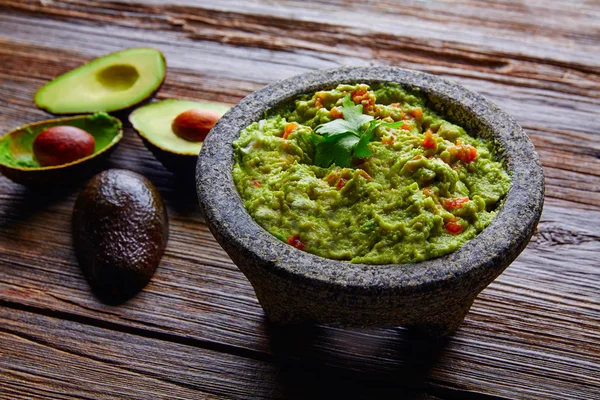Apapachos : 5 Minutes Spanish on the middle of the week / 5 minutos a la mitad de la semana de Los Cabos, México
English version / See the Spanish Apapachos
Hello friends? Good morning, good afternoon or good
night!
In the 5 minutes of Spanish in the middle of the week
we are going to talk about the words that originated in Mexico and were spread
around the world. They belong to the Nahuatl language, a very important
language, spoken by many people, still spoken, written and it is the first
language of many Mexicans.
When the Spanish arrived, America was populated by
between 5 and 9 million people or more, according to the writings of Spanish
priests. Nahuatl with all its variants was spoken in the area since the 5th century
and we must remember that the Olmecs, Toltecs, Mayas and then Mexicas were
among the first civilizations in the world.
And with the conquest, many vegetable, animal and
mineral products unknown to Europe until that moment were incorporated into daily
life. And the words of the Native American languages, now we are speaking of Nahuatl,
also joined the Spanish. As we know, all languages are enriched and changed
throughout history.
What are the most widely used words of Nahuatl origin?
Many of them are mentioned daily and have very similar
names in English, for example, products of American origin.
Tomate (tomato) (xitlomat in Nahuatl, which means
"fat water") That is why in Mexico we call the red tomato jitomate
and the green tomato tomatillo.
It is an American product that has kept its original
name and is the basis of the so-called Mediterranean Diet.
Chocolate (from Nahuatl xocolatl) is the mixture of
sugar with cocoa.
Another American product that quickly triumphed in the
European high society from the XVl century until now.
Aguacate (avocado) (from Nahuatl “ahuacatl”), which
means testicle. The resemblance to that part of the body of man is clear, righ0t?
 |
| Aguacate por Bruno Pegoretti ¿Parece real , verdad? |
Chicle (chewing gum), from the nahuatl
"tzictli", gum that comes from the tree of chico zapote.
Chicle even became a famous brand!
And it's a word of Nahuatl origin.
Remember the slogans: Chiclet, two in one / (sound of
chiclet)
Enjoy it with Chiclet!
There are also foods that are named after the Nahuatl
Guacamole,
("ahuacamolli"), means avocado sauce (mulli).
 |
| Guacamole en molcajete |
Yummy! We made it a few months ago in one of the
cooking classes on Spanish in Cabo's Facebook.
And you can see it on YouTube
We also made esquites, (from Nahuatl
"izquitl") which means corn snack. (botana de maíz)
There are also other words that relate to cooking:
Comal, from Nahuatl "comalli" is the object
where corn tortillas are cooked. You can see it in our cooking videos in
Spanish in Cabo or in SpanishUp2U, it is an essential element in Mexican
cuisine
Popote- from Nahuatl "popotli, is the hollow cape
of some plants, there were many around the Great Tenochtitlan capital of the
Aztec Empire. Popote in English is said: straw
Some drinks like Mezcal (from Nahuatl
"mezcalli") means cooked maguey or Tequila (Tequitl - place of work,
where plants are cut)
I see you remember mezcal and tequila, why is that?
There is another very masculine one missing: Cigarro
(cigar) (in Nahuatl xigar) which means to suck in Mayan.
Any animals?
There are so many, so many that they would be the
theme for another five minutes of Spanish.
And, any other words that don’t have to do with food
or natural elements?
They can be proper names of places, let´s say; Mexico
or Xochimilco or Oaxaca
Or women's names like Xotchil (meaning flower) or
Itzel (moonlight)
I like a lot the word: cuate, (from Nahuatl cuatl,
which means twin) we currently use it to refer to a friend
My favorite word is apapachar, (from Nahuatl
"apapachoa" or "to soften something with your fingers"). It
translates as a loving pat or soul hug.
It is a hug with the soul, (abrazo con el alma) so
that we can embrace each other in times of pandemic.
That is the origin of the word, but the Mexican hug is
a real hug, like the ones before Covid 19.
We say goodbye with a strong virtual apapacho, thank
you very much for listening and reaching the end of the audio
See
you, thanks
Bye-bye
Spanish version
¿Qué tal amigos? ¡Buenos días, buenas tardes o
buenas noches!
En los 5 minutos de español a la mitad de la
semana vamos a hablar de las palabras originarias de México y que se
difundieron por el mundo. Pertenecen al idioma náhuatl, una lengua muy
importante, hablada por muchísimas personas, aún se habla, se escribe y es la
primera lengua de muchos mexicanos.
Es que a la llegada de los españoles, América estaba poblada
por entre 5 y 9 millones de personas o más, según los escritos de sacerdotes
españoles. El náhuatl con todas sus variantes se hablaba en la zona desde el siglo
V y hay que recordar que los olmecas, toltecas, mayas y luego mexicas fueron de
las primeras civilizaciones del mundo.
Y con la conquista muchos productos vegetales,
animales y minerales desconocidos hasta ese momento para Europa se incorporaron
a la vida diaria. Y las palabras de los idiomas nativos americanos, ahora
hablamos del náhuatl, también se unieron al español. Como sabemos, todas las
lenguas se van enriqueciendo y cambiando a lo largo de la historia.
¿Cuáles son las palabras más usadas de origen náhuatl?
Muchas las mencionamos a
diario y tienen nombres muy similares en el inglés, son por ejemplo, los
productos originarios de América.
Tomate (xitlomat en náhuatl, que significa “agua gorda”). Por
eso en México al tomate rojo lo llamamos jitomate y al tomate verde tomatillo.
Es un producto americano que conservó su nombre original y es
la base de la llamada Dieta Mediterránea.
Chocolate (del náhuatl
xocolatl) es la mezcla del azúcar con el cacao.
Otro producto americano que triunfó rápidamente en la alta
sociedad europea desde el siglo XVl hasta ahora.
Aguacate (del náhuatl “ahuacatl”), que significa testículo.
El parecido con esa parte del cuerpo del hombre está claro, ¿verdad?
Chicle, del náhuatl “tzictli”, goma de mascar que viene del
árbol de chico zapote.
¡El chicle hasta se hizo una marca famosa!
Y es una palabra de origen náhuatl.
¿Recuerdas
los slogans?: Chiclet, dos en uno /(sonido del chiclet)
¡Disfrútalo
con Chiclet!
También hay comidas que su nombre viene del náhuatl
Guacamole, (“ahuacamolli”), significa salsa (mulli) de
aguacate.
¡Qué
rico! Lo hicimos hace unos meses en una de las clases de cocina en el Facebook
de Spanish in Cabo.
También hicimos esquites, (del náhuatl “izquitl”) que
significa botana de maíz. (corn snack)
También
hay otras palabras que se relacionan con la cocina:
Comal, del náhuatl “comalli” es el objeto donde se cuecen las
tortillas de maíz. Lo pueden ver en nuestros videos de cocina en Spanish in
Cabo o en SpanishUp2U, es un elemento esencial en la cocina mexicana
Popote- del
náhuatl “popotli, es el cabo hueco de algunas plantas, había muchas alrededor
de la Gran Tenochtitlán capital del Imperio Azteca. El popote en inglés se
dice: straw
Algunas bebidas como el Mezcal (del náhuatl “mezcalli) significa
maguey cocido o el Tequila (Tequitl - lugar de trabajo, donde se cortan
plantas)
Ya veo
que te acuerdas del mezcal y del tequila, ¿Por qué será?
Falta
otra muy masculina: Cigarro (en náhuatl xigar) que significa chupar en maya.
¿Algún animal?
¡Hay muchísimos!, tantos que serían tema para otros cinco
minutos de español.
Y, ¿otras palabras que no tengan que ver con comida o
elementos naturales?
Pueden
ser nombres propios de lugares, digamos; México o Xochimilco o Oaxaca
O nombres
de mujer como Xotchil (que significa flor) o Itzel (lucero de luna)
Me gusta mucho: cuate, (del náhuatl cuatl, que significa
mellizo (twin) actualmente la utilizamos para referirnos a un amigo
Mi
palabra preferida es apapachar, (del náhuatl “apapachoa” o “ablandar algo con
los dedos”) Se traduce como palmada cariñosa o abrazo del alma.
Es un abrazo con el alma, (Hug with the soul) así nos podemos
abrazar en tiempos de pandemia.
Ese es el origen de la palabra, pero el
abrazo mexicano es un abrazo de verdad, como los de antes del Covid 19.
Nos despedimos con un fuerte apapacho
virtual, muchas gracias por escuchar y
llegar hasta el final del audio
Nos vemos, gracias
Chau, chau







Comentarios
Publicar un comentario